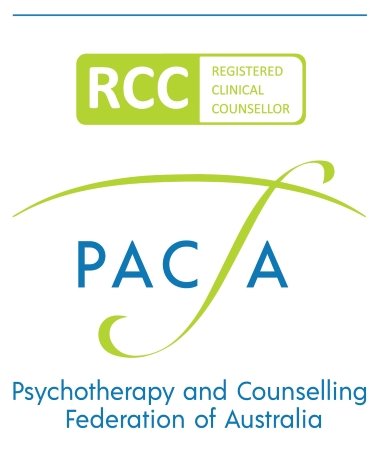
About Karen
PSYCHOTHERAPIST, TRAINER, EDUCATOR and GROUP FACILITATOR
Karen Marsh
Karen is a licenced professional psychotherapist based in the Sunshine Coast, Queensland. Karen has a background in psychology and a Master’s in Counselling. Over the last 20 years, Karen has worked in direct practice with women, men, children and families. Karen is passionate about helping others make positive changes. Adopting a person-centred approach, empowering clients to explore, unlock and realise their full potential. To find inner peace and grow more comfortable with their emotional experiences.
Qualifications:
Master of Counselling
Bachelor of Science in Psychology
Bachelor of Science in Counselling
Graduate Certificate in Neuropsychotherapy
Neuropsychotherapy Practitioner Training
Graduate Certificate in Expressive Therapies for Children and Adolescents
Graduate Diploma in Gestalt Theory and Methods, Gestalt Ass QLD
Certificate IV in Assessment and Workplace Training (Cadet)
Advanced Diploma of Counseling
Certificate IV in Counseling and Family Therapy
Psychodynamic Therapy Training
Professional Memberships & Registrations
Karen is a clinical member of PACFA clinical member 28250
Clinical Approach
With a particular interest in relational, attachment and complex trauma, Karen adopts a holistic approach that utilises a compassionate, strength-based approach, working collaboratively with my clients to achieve their goals.
I adopt a trauma-informed practice, utilising theories such as mind-body theories, attachment theory, regulation of the nervous system, and a "bottom-up" sensorimotor approach. I recognise that our lives are shaped by past experiences, relationships, and patterns, which are accessible in the present moment. My approach considers the impact of sociocultural and external factors while respecting individual uniqueness and collective experiences and is influenced by feminist and family systems theories. In addition to traditional talk therapies, I offer a combination of different therapy modalities to gain insight, integrate, and shift old patterns, including Acceptance and Commitment Therapy (ACT), Art therapy, Attachment-Based Therapy, Client-Centered Therapy, Cognitive Behavioural Therapy (CBT), Dialectical Behaviour Therapy (DBT), Emotionally Focused Therapy (EFT), Existential Therapy, Eye Movement Desensitisation and Reprocessing (EMDR), Expressive therapies, Gestalt therapy, Internal Family Systems (IFS), Mindfulness Therapy, Motivational Interviewing, Psychodynamic Therapy, Somatic work, Sand tray therapy, and symbol work.
Sand-Tray and Symbol Therapy
Sand tray therapy is a form of expressive therapy that uses a shallow tray filled with sand as a medium for exploring and expressing emotions, thoughts, and experiences. In sand tray therapy, the client selects miniature figures and objects from a collection and arranges them in the tray to create a symbolic representation of their inner world. The therapist may then use this representation as a starting point for exploring and processing emotions, thoughts and experiences related to the client's life.
Sand tray therapy can be used to address a wide range of issues, including trauma, anxiety, depression, and relationship difficulties. The goal is to help clients gain insight, understanding and a sense of control over their experiences.
Expressive therapies are a group of therapeutic approaches that use various forms of creative expression, such as art, music, dance, drama, and writing, to address emotional, psychological, and physical symptoms. These therapies are based on the idea that the creative process can help individuals access and process emotions and experiences that may be difficult to express through words alone. Expressive therapies provide a non-verbal and experiential means of self-expression, which can help clients increase self-awareness, improve emotional regulation, and overcome psychological and physical symptoms. They can be used alone or in combination with other forms of therapy, such as talk therapy, to support the healing and growth process.
Eye Movement Desensitisation and Reprocessing
COMING SOON
Eye Movement Desensitisation and Reprocessing
Eye Movement Desensitisation and Reprocessing (EMDR) is a type of therapy that has been highly effective in treating many mental health conditions, including trauma, anxiety, depression, and phobias. EMDR uses eye movements to stimulate the brain's natural healing process and help individuals process and integrate traumatic experiences.
During EMDR therapy, the therapist guides the client through eye movements while focusing on a traumatic experience. This process can help to reduce the intensity of negative emotions and thoughts associated with the trauma and increase feelings of safety and control.
EMDR is a relatively short-term therapy, typically lasting between 6 to 20 sessions. It has been shown to be as effective as, or more effective than, other forms of therapy for treating trauma and other mental health conditions.
Somatic Art Therapy
Somatic Art therapy is a form of psychotherapy that does not require any artistic talent and utilises a bottom-up process rather than a top-down cognitive strategy. It emphasises the awareness of the embodied self and can benefit clients of all ages. Somatic therapy focuses on the connection between the mind and body and aims to help individuals become more aware of their physical sensations and emotions.
In somatic art therapy, the therapist may use art-making to help clients connect with their bodies and emotions and process and integrate their experiences. This approach can be useful for individuals who may find it challenging to express their emotions through verbal means and can help them to gain a deeper understanding of their thoughts, feelings, and behaviours.
Memory Reconsolidation
Memory reconsolidation therapy is a relatively new therapeutic approach that is based on the idea that memories can be updated and changed through a process known as memory reconsolidation. This process occurs when a memory is retrieved and re-stored; during this time, the memory is thought to be vulnerable to change. Memory reconsolidation therapy aims to take advantage of this process to modify the impact of traumatic or negative memories.
In therapy, the client recalls a traumatic or negative memory from a place of emotional safety in the here-and-now context. The therapist then helps the client to reframe the memory in a new way by changing the client's perspective or associations with the memory. This process is thought to create a new memory trace, which replaces the old, negative memory over time. The idea is that this process can reduce the emotional distress associated with traumatic memories and help the client move forward.






